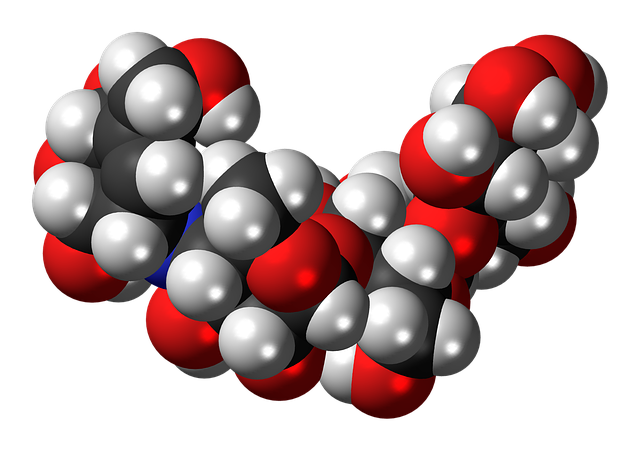Category: Defending Drug Charges in Oregon
Defending Drug Charges in Oregon: Navigating the Complex Landscape
Introduction
In the intricate web of legal proceedings, defending drug charges stands as a critical aspect of ensuring justice and protecting individual rights within the state of Oregon. This comprehensive article aims to dissect and explore the multifaceted nature of defending drug-related accusations, delving into various strategies, considerations, and trends that shape this dynamic field. From understanding the foundational laws to examining global implications, readers will gain valuable insights into the intricate process of navigating Oregon’s legal system regarding drug offenses.
Understanding Defending Drug Charges in Oregon: A Comprehensive Overview
Definition: Defending Drug Charges in Oregon refers to the legal processes and strategies employed by individuals or legal representatives to challenge, mitigate, or dismiss drug-related criminal charges brought forth by the state’s law enforcement agencies. This includes a range of actions from pre-trial motions to negotiation and, ultimately, trial defense.
Key Components:
- Legal Representation: The cornerstone of an effective defense is legal counsel specialized in drug offense cases. Oregon offers a mix of public defenders and private attorneys, each bringing unique expertise.
- Case Evaluation: Initial assessment of the case involves reviewing evidence, understanding the charges, and identifying potential defenses or weaknesses in the prosecution’s case.
- Pre-Trial Motions: Lawyers file motions to suppress evidence, challenge witness credibility, or raise legal arguments that may dismiss or reduce the charges.
- Negotiation: Plea bargaining is a common strategy where the defendant agrees to plead guilty to a lesser charge or accepts a negotiated sentence in exchange for a reduced penalty.
- Trial Defense: If the case proceeds to trial, lawyers present evidence, call witnesses, and argue for their client’s acquittal based on reasonable doubt.
Historical Context: Oregon’s approach to drug charges has evolved over time, influenced by national trends and public policy shifts. The ‘war on drugs’ of the 20th century led to stringent laws, but recent years have seen a movement towards more compassionate, health-focused strategies, including expanded access to treatment and reduced sentencing for low-level offenses.
Significance: Understanding defending drug charges is crucial for several reasons:
- Individual Freedom: Ensuring fair legal representation protects the rights of individuals accused of drug offenses, ensuring they receive a just trial.
- Public Safety: Effective defense strategies can lead to more accurate convictions, deterring future drug-related crimes while also redirecting resources towards treatment and prevention.
- Economic Impact: Drug charges carry significant financial consequences, including legal fees and potential long-term repercussions for employment and housing. Defending these charges can mitigate these impacts.
Global Impact and Trends
Defending drug charges in Oregon is not an isolated phenomenon but part of a broader global conversation and legal framework. International trends significantly influence local practices:
| Global Trend | Impact on Oregon |
|---|---|
| Decriminalization and Legalization: Countries like Canada, Uruguay, and parts of the US have legalized or decriminalized marijuana, influencing public opinion and policy in Oregon, where medical marijuana use has been legal since 1998. | Oregon’s laws regarding cannabis possession and usage are more liberal than many other states, shaping defense strategies for similar offenses. |
| International Drug Trafficking Control: Global efforts to combat drug trafficking have led to increased border security and stricter regulations, affecting how evidence is handled in local cases. | Law enforcement agencies in Oregon must adhere to international standards and protocols, impacting the collection and use of evidence in court. |
| Human Rights Approaches: A growing emphasis on human rights has influenced legal defenses, advocating for treatment over punishment for drug-related offenses. | This trend encourages a more compassionate approach to defending drug charges, emphasizing rehabilitation and reducing harsh sentences. |
Economic Considerations: The Drug Market and Its Impact
The economic aspects of defending drug charges are multifaceted, involving the illegal market dynamics and the broader economic systems affected:
Market Dynamics:
- Oregon’s illegal drug market operates similarly to legal industries, with supply chains, distribution networks, and varying product quality.
- The pricing and availability of drugs can be influenced by global markets, supply disruptions, and local demand.
- Understanding these dynamics is crucial for defense attorneys, as it may reveal potential sources or vulnerabilities in the prosecution’s case.
Investment Patterns:
- Drug trafficking generates significant revenue, attracting investments from organized crime syndicates and corrupt individuals.
- Tracing and disrupting these financial flows is a critical aspect of law enforcement strategy, often requiring specialized legal tactics.
- Defending charges related to drug money laundering or associated crimes requires a deep understanding of financial regulations and investigative procedures.
Economic Impact on Oregon:
- Drug offenses carry substantial economic costs for the state, including direct law enforcement expenses and indirect costs such as loss of productivity and healthcare expenditures.
- Effective defense strategies can lead to reduced incarceration rates, potentially lowering recidivism and associated costs while freeing up resources for alternative programs.
- Legal representation in drug cases also contributes to Oregon’s legal services industry, generating employment and economic activity.
Technological Advancements: Enhancing Defense Strategies
Technology plays a pivotal role in defending drug charges, revolutionizing both law enforcement and legal defense practices:
For Law Enforcement:
- Forensic Science: Advanced drug testing methods, including mass spectrometry, enable more accurate identification of substances, aiding in prosecution.
- Surveillance Tools: GPS tracking, facial recognition software, and data analytics help track suspects and predict crime patterns.
- Digital Evidence: Cell phone forensics, social media posts, and online activities provide valuable insights into a defendant’s intentions and knowledge.
For Legal Defense:
- Case Law Research: Online legal databases streamline research, enabling attorneys to quickly access relevant case law and legal arguments.
- Evidence Analysis Software: Tools designed to analyze complex data assist in challenging or supporting prosecution evidence.
- Teleconference and Video Evidence: During the COVID-19 pandemic, remote trials became more common, requiring innovative ways to present evidence and client testimony.
- Blockchain Technology: Some advocates suggest blockchain for secure record-keeping, ensuring transparency and immutability of legal documents.
Policy and Regulation: Shaping Oregon’s Drug Laws
The policy landscape surrounding drug charges in Oregon is complex, with various laws and regulations guiding law enforcement, prosecution, and defense strategies:
Key Policies:
- Oregon Controlled Substances Act: This comprehensive law categorizes drugs into schedules based on their potential for abuse, setting penalties for possession, sale, and manufacturing.
- Medical Marijuana Program: Regulated under a separate act, this program outlines patient eligibility, physician recommendations, and cultivation/dispensing rules.
- Drug Sentencing Guidelines: The Oregon Sentencing Guidelines provide a framework for consistent sentencing, considering factors like prior offenses, drug type, and amount.
- Substance Use Disorder Treatment Programs: State policies promote access to treatment, including diversion programs that offer alternatives to incarceration for non-violent offenders.
Legislative Frameworks:
- The Oregon Legislature regularly reviews and updates drug laws, reflecting changing public perceptions and scientific evidence regarding substance use disorders.
- Recent reforms have focused on reducing mandatory minimum sentences, promoting drug treatment, and addressing disparities in the criminal justice system.
- Federal laws, such as the Controlled Substances Act (CSA), also apply to Oregon, influencing state-level policy and enforcement strategies.
Challenges and Criticisms: Overcoming Barriers to Effective Defense
Despite significant strides, defending drug charges in Oregon faces several challenges and criticisms that demand strategic solutions:
Main Challenges:
- Resource Disparities: Public defenders often face overwhelming caseloads, limiting their ability to provide thorough legal representation. Funding disparities between urban and rural areas exacerbate this issue.
- Complex Legal Landscape: The ever-evolving nature of drug laws and regulations requires constant updates to defense strategies, posing challenges for both lawyers and clients.
- Public Perception: Stigma associated with drug use and a ‘get tough’ attitude towards offenders can influence judicial decisions, making it harder for defendants to receive fair trials.
- Evidence Collection: Ensuring the integrity of evidence collection and handling is crucial, especially with evolving technology, to avoid missteps that could compromise cases.
Proposed Solutions:
- Increased Funding: Enhancing public defender resources through increased funding can improve access to legal counsel for low-income defendants.
- Simplification of Laws: Streamlining drug laws and regulations would reduce confusion and provide clearer guidelines for both law enforcement and defense attorneys.
- Public Education: Raising awareness about substance use disorders as health issues, rather than solely criminal problems, can foster more empathetic public responses.
- Improved Training: Providing specialized training for law enforcement and legal professionals on evidence handling, mental health aspects of drug offenses, and the latest technological advancements.
Case Studies: Successful Defense Strategies in Action
Case Study 1: Navigating Medical Marijuana Charges
A 35-year-old patient, Sarah, was arrested for selling medical marijuana to an undercover officer. Her defense team, led by a specialized public defender, challenged the case on two fronts:
- Legal Argument: They argued that Oregon’s medical marijuana program provides immunity from prosecution for patients who comply with state laws, including proper documentation and limited quantity.
- Character Evidence: Sarah’s treating physician testified about her commitment to patient care and the positive impact of medical marijuana on her chronic pain condition.
Outcome: The jury acquitted Sarah on all charges, demonstrating the success of a defense strategy that combined legal expertise with compelling character evidence.
Case Study 2: Diversion Program for Non-Violent Offenders
In a rural county, a young man, Jake, was charged with possession of cocaine with intent to deliver. He qualified for the state’s diversion program, which offers treatment and support services instead of prosecution:
- Program Enrollment: Jake entered the program, participating in regular drug testing, counseling sessions, and community service.
- Progress Reporting: His caseworker submitted progress reports to the court, showcasing his commitment to treatment and reduced drug use.
- Court Review: After a year, the court reviewed Jake’s case and, impressed by his turnaround, dismissed the charges, allowing him to move forward without a criminal record.
Impact: This case illustrates how alternative approaches can be highly effective in reducing recidivism and providing a second chance to individuals struggling with substance use disorders.
Future Prospects: Emerging Trends and Strategic Considerations
The future of defending drug charges in Oregon is shaped by evolving legal, social, and technological trends:
Potential Growth Areas:
- Mental Health Integration: Increasing recognition of the intersection between substance use disorders and mental health conditions may lead to more holistic defense strategies, emphasizing treatment and support services.
- Technological Advancements in Forensics: Ongoing research in drug testing methods and data analytics will provide law enforcement with more precise tools, necessitating sophisticated defense responses.
- Cannabis Legalization and Regulation: As Oregon continues to refine its cannabis regulations, new legal challenges may arise, particularly regarding product safety, taxation, and possession limits.
Emerging Trends to Watch:
- AI and Predictive Analytics: Artificial intelligence could be used for risk assessment and crime prediction, but its potential bias and privacy concerns raise ethical questions that must be addressed in defense strategies.
- Decriminalization of Psychotropic Substances: Similar to recent trends globally, Oregon might consider decriminalizing certain substances for personal use, requiring legal adaptations and public education campaigns.
Strategic Considerations:
- Staying Informed: Defense attorneys must remain abreast of legislative changes, judicial rulings, and emerging scientific research to adapt their strategies accordingly.
- Collaboration and Advocacy: Building alliances with community organizations, health professionals, and policymakers can foster more effective defense practices and influence policy reforms.
- Technological Proficiency: Investing in legal technology will enhance case management, evidence analysis, and client communication, ensuring a competitive edge in the digital age.
Conclusion: Navigating the Complexities for Justice and Freedom
Defending drug charges in Oregon is a complex yet crucial endeavor that intersects with public safety, individual rights, and economic considerations. As global trends continue to shape local policies, and technology evolves at a rapid pace, the legal defense community must adapt and innovate. By understanding the intricacies of this field, attorneys can provide more effective representation, contribute to policy reforms, and ultimately ensure justice for those facing drug-related accusations.
FAQ Section: Answering Common Concerns
Q: Can I represent myself in a drug charge case?
A: While self-representation is legal in Oregon, it is strongly advised against, especially for complex drug cases. The legal process is intricate, and specialized attorneys have the expertise to navigate these complexities, ensuring a stronger defense.
Q: What happens if I plead guilty? Is there any chance of avoiding jail time?
A: Pleading guilty does not automatically mean imprisonment. Oregon’s sentencing guidelines consider various factors, including prior offenses and drug type, allowing for alternatives like probation, community service, or drug treatment programs in lieu of incarceration.
Q: How can I find a qualified public defender?
A: Local bar associations and court clerks can provide referrals to public defenders. It’s essential to contact them promptly after your arrest to ensure you receive adequate legal representation.
Q: Are there any resources available for individuals struggling with substance use disorders?
A: Absolutely. Oregon offers various support services, including hotlines, treatment centers, and community-based organizations dedicated to helping individuals overcome addiction. Contacting these resources can be a significant step towards recovery.
Q: Can new technologies like blockchain revolutionize drug case evidence?
A: Blockchain has the potential to enhance transparency and security in legal processes, ensuring the integrity of digital records. However, its practical application in drug cases is still evolving, and its effectiveness depends on widespread adoption and regulatory frameworks.
Navigating Oregon’s Drug Laws: Building Strategic Defenses

Facing drug charges in Oregon? The Oregon Drug Guide is your legal compass. It outlines severe penal…….
Comprehensive Guide: Defending Drug Charges in Oregon

In Oregon, a shift towards decriminalization and health interventions means non-jail time for small-…….
Defending Drug Charges in Oregon: Strategic Legal Guide

Facing a drug charge in Oregon? Understand your rights and strategies. Drug offenses are categorized…….
Mastering Drug Case Tactics: Effective Legal Strategies in Oregon
Defending Drug Charges: Navigating Oregon’s Legal Landscape
Navigating Oregon’s Drug Laws: Effective Legal Strategies for Defending Drug Charges
Defending Against Drug Charges: Oregon’s Legal Strategies Unveiled

In Oregon, understanding drug charge strategies is vital for anyone facing narcotics accusations. Th…….
Mastering Drug Defense Strategies in Oregon: Tactics for Case Success

In Oregon, navigating drug cases requires a balanced approach between public safety and rehabilitati…….




